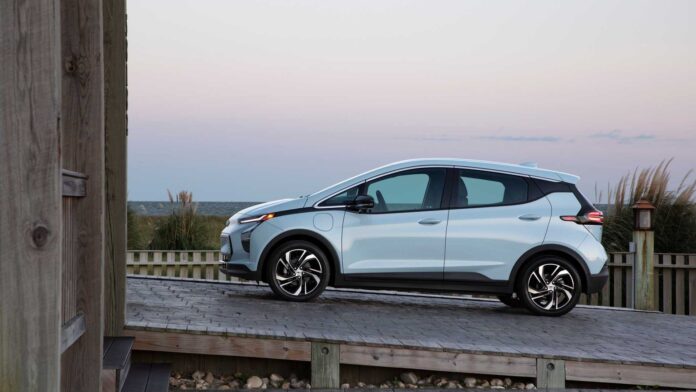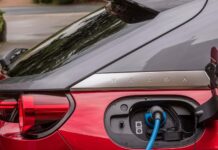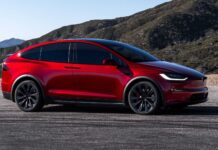[ad_1]
General Motors has announced that the production of the Chevrolet Bolt EV and Chevrolet Bolt EUV at the Orion Assembly plant in Michigan will not resume at least until mid-October (Reuters).
The production was “temporarily” halted in August due to the massive battery recall that concerns all Bolts ever produced. Then, the shutdown was extended to September 24, but now we know that at least three more weeks will be needed and the new date is mid-October.
That’s a really unfortunate outcome and we are afraid that mid-October might not be the last extension of the shutdown. Moreover, GM was forced to limit or stop production at six North American plants because of the ongoing general semiconductor chips shortage.
In the case of Bolt EV/EUV, the company reports that there were 12 fires and three injuries. To put that into perspective, 12 fires per about 142,000 cars is just 0.0085%. That’s not even 1% of 1%.
Most recently, the company advised owners to park 50 feet (15 m) away from other cars to prevent damage to other vehicles in the case of another fire. Well, we all know that it’s basically impossible for most car users to abide by this.
Moving forward, GM work with its lithium-ion battery cell supplier – LG Chem’s LG Energy Solution – to solve the manufacturing issue that causes defects in the cells and will start the battery recall.

2022 Chevrolet Bolt EV

2022 Chevrolet Bolt EUV
- the full battery recall was announced on August 20, 2021
- cause: manufacturing defects (a torn anode tab and folded separator) in lithium-ion battery cells (pouch type) supplied by LG Chem’s LG Energy Solution may lead to a battery fire “in rare circumstances”
Cells were produced in plants in South Korea and in Michigan - fire reports (as of September 16, 2021 via Reuters): 12 and three injuries
- cars: about 142,000 cars (including about 100,000 in the U.S.)
all Chevrolet Bolt EV (2017-2022)
all Chevrolet Bolt EUV (2022) - remedy: replacement of battery modules (newer cars) or entire battery packs (early cars)
temporarily: don’t charge beyond 90% State of Charge (SOC) or discharge below approximately 70 miles (113 km) of the remaining range (which is close to 30% SOC, assuming roughly 250 miles of EPA range) and keep the vehicles outside. - estimated cost: $1.8 billion
on average it might be about $12,675 per car (or about $190 per kWh)
GM announced that it will pursue reimbursement from LG Energy Solution - estimated battery volume: 9.2-9.4 GWh
- similar case: Hyundai recall of about 82,000 EVs (including 75,680 Hyundai Kona Electric)
- production: production of new cars was halted in August 2021 and it’s expected to resume no earlier than in mid-October
[ad_2]
Source link













